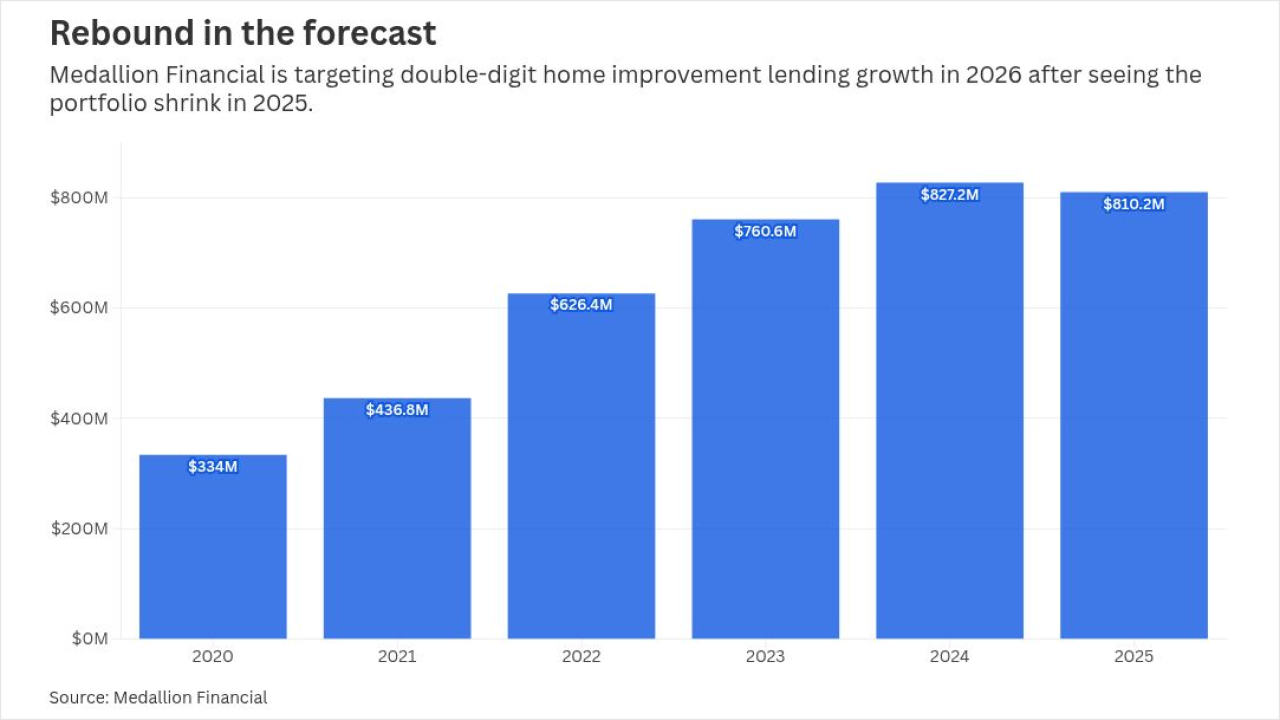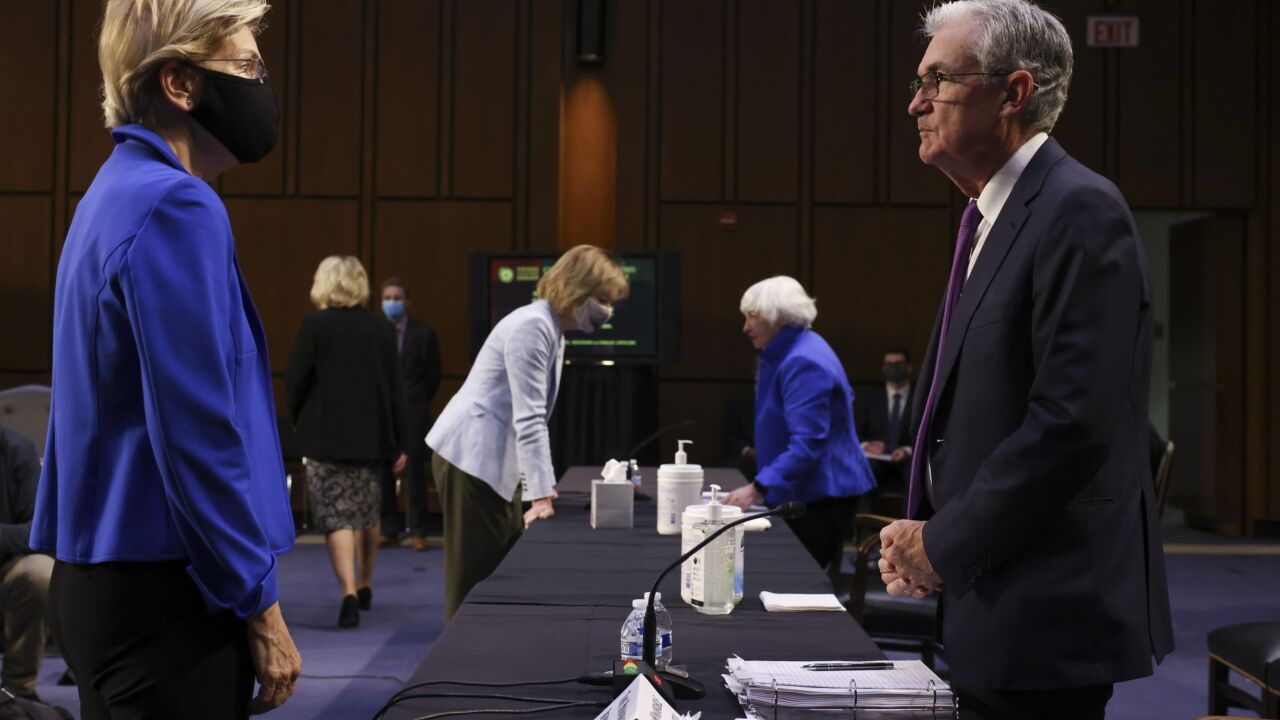A new group opposing efforts to merge industry charters has exposed a big rift among thrifts.
Processing Content
On one side is America's Community Bankers, the major thrift trade group, which is trying to develop a charter that would give more powers to both banks and thrifts. Challenging the big trade association is the Thrift Charter Coalition, which is made up of 20 large institutions that own thrifts, including diversified financial firms such as Beneficial Financial Management Corp., the Travelers Group, and Citicorp.
Coalition members argue that Congress isn't going to exempt banks from state consumer protection laws or permit them to affiliate with nonfinancial firms. These are critical thrift powers. Consequently, they argue, there's too much at stake to push for a new charter.
"I don't see Congress voting up these kinds of powers for national banks," said a lobbyist for one coalition member.
The bulk of ACB members, small and locally based, are less interested in preserving these powers because they do not use them. But they are very eager to merge the bank and thrift deposit insurance funds-something that won't happen unless the charters are merged.
The big trade group may ultimately use the unitary thrift charter as a bargaining chip to get legislation through, said Patrick Forte, president of the Association of Financial Services Holding Companies, a coalition member.
ACB spokesman Robert Schmermund insisted, however, that the association wouldn't barter away the charter. "We will vigorously oppose any bill that 'charters down,'" he said.
The American Bankers Association's political action committee significantly outspent rivals during the 1996 congressional campaign.
During the last two years, the ABA contributed $1.29 million to candidates, according to the Federal Election Commission.
That's double the $642,688 given by the Credit Union National Association, which is battling bankers over legislation that would expand its membership base.
The American Council of Life Insurance and the Independent Insurance Agents of America, longtime ABA rivals over bank powers legislation, contributed $606,531 and $570,467, respectively.
Five bank political action committees ranked among the 50 largest corporate contributors to political campaigns in 1996, according to the FEC.
Leading the industry was Columbus, Ohio-based Banc One Corp., with $473,156 of contributions. Banc One placed 20th among all corporate contributors.
"We want to be as big as the ABA," said Banc One lobbyist Annie Hall.
Second among banks was NationsBank Corp. which gave $457,785. It was followed by Citicorp, at $428,800; BankAmerica Corp., $362,651; and Barnett Banks Inc., $333,625.
First Data Corp. has hired Mary Clare Fitzgerald to convince lawmakers that nonbanks should be allowed to participate in the government's electronic benefits transfer program.
The company is the parent of Western Union, and a big chunk of its customers are people without bank accounts. It aims to tap more of the EBT market by 1999 when all government payments, including Social Security and veterans benefits, must be made electronically.
Though the Treasury Department wants the on-line payments mandate to get more poor people to use banks, First Data spokesman Peter Ziverts said nonbanks shouldn't be left out.
"This law affects our primary customer base-the unbanked and underbanked," he said. "We just want policymakers to know who we are."





